Hess Family History & Genealogy
Hess Last Name History & Origin
AddHistory
We don't have any information on the history of the Hess name. Have information to share?
Name Origin
We don't have any information on the origins of the Hess name. Have information to share?
Spellings & Pronunciations
We don't have any alternate spellings or pronunciation information on the Hess name. Have information to share?
Nationality & Ethnicity
We don't have any information on the nationality / ethnicity of the Hess name. Have information to share?
Famous People named Hess
Are there famous people from the Hess family? Share their story.
Early Hesses
These are the earliest records we have of the Hess family.

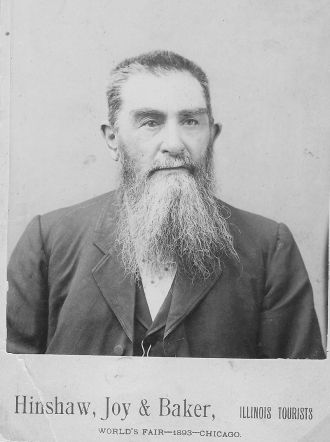

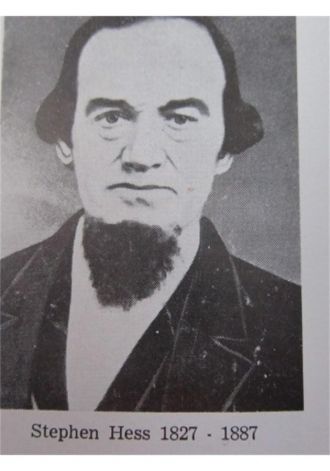

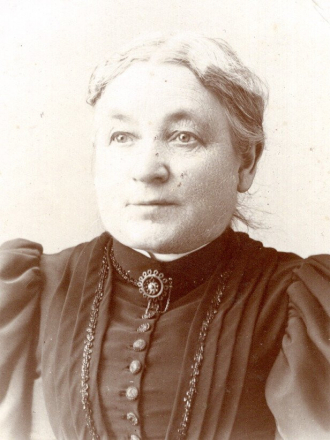

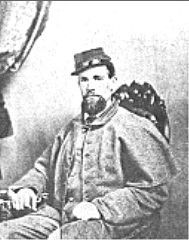
Hess Family Members
Hess Family Photos
Discover Hess family photos shared by the community. These photos contain people and places related to the Hess last name.


Irena or Irene HESS was b. 22 Apr 1828 in Minden, NY to parents George Henry HESS (1795-1857) and Catherine “Caty” WORMUTH (1806-1892). Irene was one of 13 children born to this couple including Moses; Aaron; Irene; Solomon; Catherine; Adam; George M.; James; Matthew; Eva; Harlow; Irving or Irwin; and Louis HESS, all born between 1824 and 1851. Her father was married previously and had three additional children including Abraham; Mary or Maria; and Elizabeth HESS, all born between 1818 and 1822.
Irene married Aaron DUNCKEL (1820-1873) in 1846 in Minden, NY and the couple had 6 children including Mary Elizabeth; Adam; Ida C.; Selina or Salina; Margaret “Maggie” B.; and Lewis or Louis Adrian DUNCKEL, all born between 1847 and 1870. Irena died 1 Jan 1906 in Hessville, NY and is buried in the Fort Plain Cemetery in Fort Plain, NY.
I am hoping to get the photograph back to a family member and would appreciate you contacting me if you are a member of this family or know someone who might be.
Thanks,
Shelley
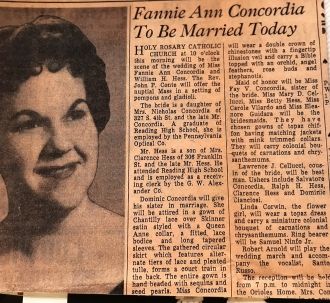
People in photo include: Shirley Ann (Concordia) Hess

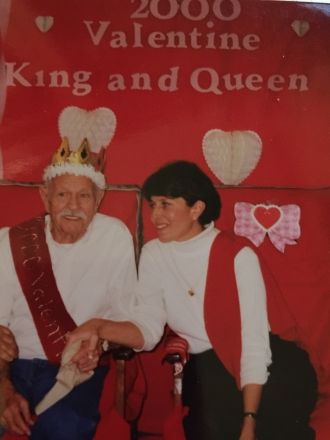
Hess Family Tree
Discover the most common names, oldest records and life expectancy of people with the last name Hess.
Updated Hess Biographies





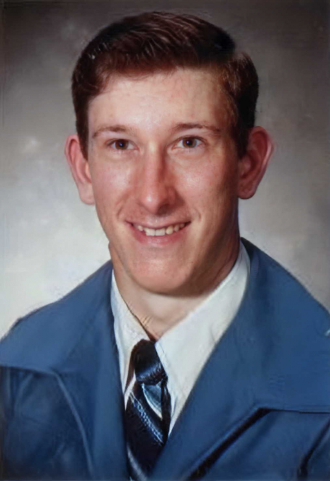

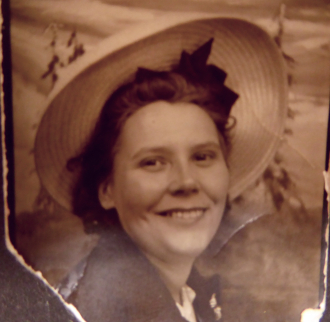
Popular Hess Biographies

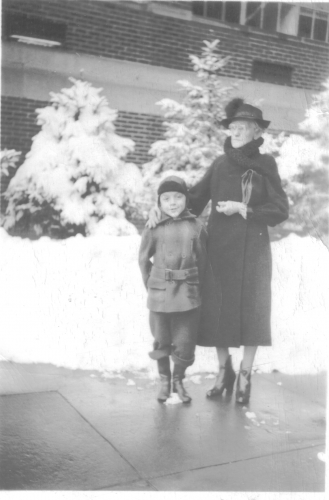



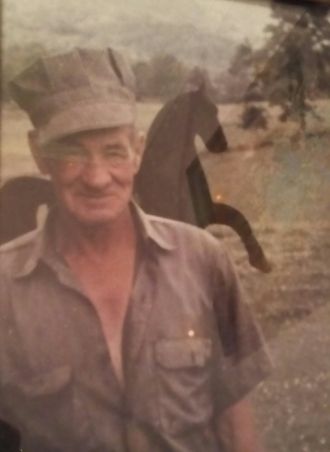

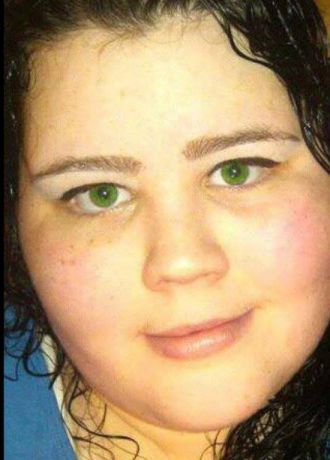


Hess Death Records & Life Expectancy
The average age of a Hess family member is 74.0 years old according to our database of 23,325 people with the last name Hess that have a birth and death date listed.
Life Expectancy
Oldest Hesses
These are the longest-lived members of the Hess family on AncientFaces.
Other Hess Records
Share memories about your Hess family
Leave comments and ask questions related to the Hess family.
In March, 1834, my father, mother, three eldest sisters and myself, were baptized into The Church of Jesus Christ of Latter-day Saints; previous to this we lived in peace with our neighbors, but soon after we were baptized our neighbors began to speak evil of us, and persecute us in various ways.
About May 1, 1836, my father and his family moved to the State of Missouri and settled in Ray County of that State, near Pomorroy's Ferry, or Richmond Landing on the Missouri River, where we lived on a farm which we rented from a John Arbuckle, until the expulsion of the Saints from Caldwell County, when with them we removed to the State of Illinois and settled in Hancock County of that State. Here my father again settled on a piece of wild land, and in our extreme poverty we began to open a farm, and after much privation and toil, we succeeded in getting a comfortable home.
The many years of labor and hardships that my father had passed through caused his health to fail, and I was the only boy in the family, therefore, the greater part of the labor devolved upon me.
In the meantime I had bought forty acres of land for myself and had made some improvement during the fall of 1844, and during the spring and summer of 1845 I was putting up a hewed log house, while the mobs were burning the Saints' possessions in Morley's Settlement, near Lima, in Hancock County. But I continued to labor with my might until the violence of the mob was so great that we did not feel safe in remaining on our farm longer; so we moved to the City of Nauvoo and occupied a part of the house belonging to Bishop Foutz, my mother's brother. We had left most of our supplies on the farm at Bear Creek, and before we had time to get them away, they were destroyed by the mob, and we were again left almost destitute.
In November, 1845, my father was stricken down with the shock of paralysis and lost the use of one side, which rendered him entirely helpless.
In the meantime I married Emeline Bigler, who was born in Harrison County, Virginia, 20 Aug. 1824. At this time the word went forth among the people that the Church would leave Nauvoo in the spring. One may well imagine the situation we were in, to start on such a journey, when we had been robbed of nearly all of our belongings, and my poor father lying helpless in bed, but it being the only alternative to get away from the fury of the mob, I began to gather up what I had and commenced to get together an outfit, and the best I could do was rig up two old wagons and two yoke of oxen, one of which was my own personal property. I arranged one of these wagons with a bed cord for my father to lie upon, as he could not sit up. It took one entire wagon for his convenience, and then it was poor enough. This left one wagon to be drawn by one yoke of oxen to carry the outfit for the entire family - eight in number - while everyone had to walk every step of the way, rain or shine. But notwithstanding all these difficulties, we fixed up the best we could and on the 3rd day of April, 1846, we started, crossed the Mississippi River, and camped on the Iowa side the first night, in a drenching rain.
April 4th. We started on the wearisome journey, but with our heavy loads and the incessant rains that continued to fall, our progress was very slow, the best we could do we could only travel from five to eight miles per day. As my father occupied one of the wagons, the rest of the family had no shelter only what they could get by crawling under the wagons, and much of the time we were obligated to cut brush to lay on the ground to keep our beds out of the water. Women and children walked through the mud and water and wet grass and waded many of the streams so that their clothes were never dry on them for weeks and months until we reached the place called Mt. Pisgah, in the western part of Iowa. Here advance companies of the Pioneers had planted corn and vegetables for the benefit of those who should come afterwards. We concluded to stop at this place for a time as our limited supplies were about exhausted and my father was so much worse that it was impossible to go any further, so we constructed a temporary shelter of bark which we pealed from the elm trees that grew in the vicinity, this was about the 15th of June, 1846.
Word had gone out that President Young would fit out a company to go to the Rocky Mountains that season to locate a settlement and put in grain the next season for the benefit of themselves and those that would come the following season.
Seeing that I could do nothing where I was, I concluded to take my own team and what I had, and go to Council Bluffs, 130 miles distance, where the Church Authorities were then stopping. So I made my father's family as comfortable as I could with the limited facilities I was in possession of, and taking my wife and my own team and little outfit, bade the rest of the family goodbye and started, traveling in Henry W. Miller's Company.
We were overtaken one evening about dark by Captain Allen, who was accompanied by a guard of five dragoons of the regular United States Army, all of whom camped with us for the night. The object of their visit soon became apparent by questions asked by them: viz., that they were sent to see if the ''Mormons" could and would respond to a call for five hundred men to help fight the battles for the United States against Mexico. This indeed was unexpected news, while the people of the State of Illinois had driven us out, and while we were scattered on the prairie of western Iowa with nothing, in many instances, but the canopy of heaven for a covering, to be called on under these circumstance for 500 of the strength of the camps of Israel, seemed cruel and unjust indeed, but such was the case, notwithstanding.
We arrived at Council Bluffs about the tenth day of July and found that four companies had been enlisted and organized. I was advised by George A. Smith and others to enlist, and after considering the matter, I concluded to do so, and was enlisted in Company "E", Captain Daniel C. Davis [commanding]. My wife, Emeline, also enlisted, as the Government had provided for four women to each company of 100 men to go as laundresses.
I left my team and wagon and little outfit with my brother-in-law, Daniel A. Miller, to be brought on the next year, as the Government had provided two six-mule-teams to each company. I was solicited to drive one team, and for the comfort and convenience of my wife I consented to do so, and many times I was thankful that I had done so, as these teams had to haul the camp equipment which consisted of tents, tent poles, camp kettles, etc., which filled the wagons up to the bows, and the women would have to crawl in as best they could and lie in that position until we stopped for camp. And as I had the management of the loading, I could make the situation a little more comfortable for my wife. For this and other reasons that I will not mention, I was glad that I was a teamster.
JOHN W. HESS
JACOB HESS
(Father of John W. Hess)
My Father, Jacob Hess, was born in Franklin County, Pennsylvania, on the 21st day of May, A.D. 1792.
In 1816 he married Elizabeth Foutz, my mother, who was born in the above State and County, June 4th, 1797. The names of their children are as follows:
Catherine Hess, born in Franklin Co,. Pa. 10 Sept. 1817.
Polly Hess, born in Franklin Co,. Pa. 27 June 1819.
Mary Ann Hess, born in Franklin Co., Pa. 11 Aug. 1821.
John W. Hess, born in Franklin Co., Pa. 24 Aug. 1824.
Sarah Hess, born in Franklin Co., Pa. 22 Feb. 1827.
Ann Elizabeth Hess, born in Franklin Co., Pa. 24 Mar. 1829.
Christina Hess, born in Franklin Co., Pa. 11 May 1831.
Harriet Hess, born in Richland Co., Ohio, 18 Aug. 1833.
Lydiann Hess, born in Richland Co., Ohio, 24 July, 1835.
David Hess, born in Ray County, Mo., 18 Feb. 1837.
Alma Hess, born in Ray County, Mo., 03 June 1839.
Emma Hess, born in Adams County, Ill., 17 May, 1841.
JOHN W. HESS
John W. Hess was born in Franklin County, Pennsylvania, on 24 August 1824. He was married in Nauvoo, Ill, 02 November 1845, to Emeline Bigler (first wife), and sealed by Brigham Young, 09 March, 1852. She was born in Harrison County, Virginia, 20 August, 1824, and died in Farmington, Davis County, Utah, 31 January 1862. The names of their children are as follows:
Jacob Hess, born 06 Jan. 1849.
John Henry Hess, born 07 May 1850.
Sarah Jane Hess, 15 Jan. 1852.
Hyrum Hess, born 20 Apr. 1853.
Elzada Hess, born 11 Aug. 1854.
Moroni Hess, born 30 Dec. 1855.
Jedediah Morgan Hess, born 08 July 1857.
Joseph Wells Hess, born 11 Oct. 1859.
Albert Hess, born 17 Mar. 1861.
He was married to Emily Card (second wife) in Salt Lake City, Utah, 30 March 1852, by Brigham Young. She was born in Maine, 27 Sept. 1831, and died in Farmington, Davis County, Utah, 04 Aug. 1872. The names of their children are as follows:
Rheuamah Hess, born in Farmington, Utah, 02 May 1853.
Emily Rebecca Hess, born in Farmington, Utah, 26 June 1854.
Harriet Sophrona Hess, born in Farmington, Utah, 11 Mar. 1857.
Elizabeth Jane Hess, born in Farmington, Utah, 26 Jan. 1859.
Mary Lovina Hess, born in Farmington, Utah, 10 Apr. 1861.
Joseph Lancaster Hess, born in Farmington, Utah. 16 Aug. 1864.
Joel Preble Hess, born in Farmington, Utah, 04 Feb. 1866.
Alma Riley Hess, born in Farmington, Utah, 16 Aug. 1868.
Dexter Waterman Hess, born in Farmington, Utah, 09 Feb. 1870.
Maud Hess, born in Farmington, Utah, 04 Aug. 1872.
John W. Hess married Julia Pederson (third wife) in Salt Lake City, Utah, 16 Nov. 1856, by Brigham Young. She was born in Norway, 29 Sept. 1837. The names of their children are as follows:
Heber Chase Hess, born in Farmington, Davis County, Utah, 12 Nov. 1859.
Arthur Hess, born in Farmington, Davis County, Utah, 22 May 1861.
John Fredrick Hess, born in Farmington, Davis County, Utah, 01 Jan. 1864.
Emeline Rosalia Hess, born in Farmington, Davis County, Utah, 22 July 1868.
John W. Hess married Mary Ann Steed (fourth wife) in Salt Lake City, Utah, 27 March 1857, by Brigham Young. She was born in Mahvern, England, 27 Nov. 1838. The names of their children are as follows:
James Henry Hess, born in Farmington, Davis Co., Utah, 06 Mar. 1858.
William Alma Hess, born in Farmington, Davis Co., Utah, 03 Sept. 1859.
George Albert Hess, born in Farmington, Davis Co., Utah, 20 July 1861.
Madeline Eudora Hess, born in Farmington, Davis Co., Utah 23 Aug. 1863, and died June, 1895.
Elisa Hess, born in Farmington, Davis Co., Utah, 04 July 1865, and died in 1934.
Wilford Hess, born in Farmington, Davis Co., Utah, 08 Mar. 1867.
Mary Elizabeth Hess, born in Farmington, Davis Co., Utah, 18 Jan. 1870.
Caroline Rebecca Hess, born in Farmington, Davis Co., Utah, 25 Mar. 1872 and died 25 May, 1932.
Orson Pratt Hess, born in Farmington, Davis Co., Utah, 25 Feb. 1874.
Lorenzo Snow Hess, born in Farmington, Davis Co., Utah, 29 June 1876 and died 02 Mar. 1905.
John W. Hess was married to Caroline Workman (fifth wife) in Salt Lake City, Utah, 25 April 1862, by D.H. Wells. She was born in Tennessee, 28 Mar. 1844. The names of their children are as follows:
Josephine Hess, born in Farmington, Davis County, Utah, 12 Aug. 1864.
David Cornelius Hess, born in Farmington, Davis County, Utah, 16 Aug. 1865.
John W. Hess Jr., born in Farmington, Davis County, Utah, 20 Sept. 1867.
Adaline Hess, born in Farmington, Davis County, Utah, 11 Dec. 1869.
Franklin Hess, born in Farmington, Davis County, Utah, 10 Mar. 1872.
Charles C. Hess, born in Farmington, Davis County, Utah, 07 Mar. 1874.
Lot Hess, born in Farmington, Davis County, Utah, 27 Jan. 1876.
Caroline Hess, born in Farmington, Davis County, Utah, 28 Mar. 1878.
Minerd Lyman Hess, born in Farmington, Davis County, Utah, 05 Aug. 1880.
Mark Hess, born in Farmington, Davis County, Utah, 19 June 1884.
John W. Hess was married to Sarah L. Miller (sixth wife) in Salt Lake City, Utah, 30 May 1868, by Brigham Young. She was born in Farmington, Utah, 24 June 1850. The names of their children are as follows:
Sarah Jane Hess, born in Farmington, Davis Co. Utah, 30 Mar. 1869.
James T. Hess, born in Farmington, Davis Co. Utah, 25 Jan. 1871.
Alice Malinda Hess, born in Farmington, Davis Co. Utah, 16 Mar. 1873.
Josephine A. Hess, born in Farmington, Davis Co. Utah, 03 June 1875.
Helen Lovina Hess, born in Farmington, Davis Co. Utah, 23 Aug. 1879.
Horace Arnold Hess, born in Farmington, Davis Co. Utah, 19 Sept. 1880.
Milton Miller Hess, born in Farmington, Davis Co. Utah, 23 Dec. 1883.
Hannah Lenore Hess, born in Farmington, Davis Co. Utah, 26 July 1885.
Jess Eugene Hess, born in Farmington, Davis Co. Utah, 09 Aug. 1890.
John W. Hess was married to Frances Marion Bigler (seventh wife) in Salt Lake City, Utah, 28 July 1875, by Wilford Woodruff. She was born in Farmington, Utah, 22 Oct. 1859. The names of their children are as follows:
Claudia Hess, born in Farmington, Utah, 21 June 1878.
Clarissa Hess, born in Farmington, Utah, 13 Aug. 1880.
Harriet Hess, born in Farmington, Utah, 21 May 1882.
Edward Hess, born in Farmington, Utah, 08 Mar. 1883.
Joseph H. Hess, born in Farmington, Utah, 06 May 1886.
Amy Hess, born in Farmington, Utah, 22 Jan. 1885.
Andrew Hess, born in Farmington, Utah, 19 May 1887.
Florence Ireta Hess, born in Farmington, Utah, 14 Apr. 1892.
Lucy Hess, born in Farmington, Utah, 19 Jan. 1895.
Reuben Hess, born in Farmington, Utah, 27 Feb. 1897.
Carl Bigler Hess, born in Farmington, Utah, 27 Mar, 1899.
TOTAL 63 CHILDREN
BROTHER DAVID HESS
THEY KNEW THE PROPHET
In the Autumn of 1838, Joseph the Prophet and others came to my father's house near the Richmond Landing and stayed there thirteen days. Father was the only Mormon in that part of the country. At that time Joseph was studying Greek and Latin. When he got tired of studying, he would go and play with the children in their games about the house, to give him exercise. Then he would go back to his studies. I was a boy then about fourteen years old.
He used to take me upon his knee and caress me as he would a little child. I relate this to show the kindness and simplicity of his nature. I never saw another man like Joseph. There was something heavenly & angelic in his looks that I never witnessed in the countenance of any other person. During his short stay I became very much attached to him, and learned to love him more dearly than any other person I ever met, my father and mother not excepted.
The next time I saw the Prophet was at Richmond Court House, in chains after the surrender of Far West. I used to walk six miles every day to see him during his stay in the Richmond Jail.
Although a boy of about fourteen years, I became convinced beyond doubt that he was a prophet of God, and that testimony has never left me.
(The Juvenile Instructor, XXVI (15 MAY 1892) PAGES 302-303)
RECOLLECTION OF THE
PROPHET JOSEPH
BY L.L. GREENE RICHARDS
Elder John W. Hess, who was for a long time President of the Davis Stake of Zion, has given exceedingly interesting reminiscences of the Prophet Joseph.
When Elder Hess was a boy, about twelve years of age, his father rented a house at Richmond Landing, or, as the place was also called, Pomeroy's Ferry. There the Saints landed who came by water from Kirtland to go to Far West. And there the Prophet Joseph, in company with his brothers Hyrum and William, and others, thirteen in all, stopped as they were returning from laying out the city of Far West. They stayed with the family of Father Hess for thirteen days.
The Prophet was studying Greek and Latin. He would study intently until he was very tired, Then he would come out of his room and engage in a game, perhaps it would be "hide and seek," with the children, showing the child-like simplicity which characterized the life of that great man. And oh, how he was beloved by every member of that family!
Brother Hess says he has never seen any one else that he has loved as he loved the Prophet Joseph Smith. He can remember of Joseph's taking him on his lap at different times, and of putting his own arms around the beloved Prophet's neck and being embraced by him; and that, being thus clasped to the noble, generous, mighty heart of the Prophet, gave him a heavenly sensation never to be described or forgotten.
Upon one occasion, the little boy heard some of the brethren talking of the strength they felt they possessed in resisting temptation, and he never forgot what the Prophet said to them; it was: "Brethren, if you get onto the Devil's ground, he will handle you! Keep away from him, the farther the better!"
When the Prophet went away from the home he had found with Father Hess, you would have thought there had been a funeral in the family, the children all loved him so! This is as Elder Hess remembered those days and events.
(Taken from the Improvement Era, Vol V pg. 943. This event took place in 1838).
LATTER-DAY SAINT
BIOGRAPHICAL
ENCYCLOPEDIA
By Andrew Jenson
Vol. 1, Page 463
John W. Hess, president of the Davis Stake, is the son of Jacob Hess and Elizabeth Foutz, and was born Aug. 24, 1824, in Franklin county, Penn. In 1832 his father's family moved to Richland county, where he, together with his father, mother and elder sister, were baptized by Bishop David Evans, about 1834. His father then moved to Ray county, Mo., where the family passed through all the persecutions of those days, and was finally expelled from the State with the rest of the Saints. John W. Hess was ordained a Seventy in the city of Nauvoo in 1841 and became a member of the 22nd quorum. He assisted in building the Nauvoo Temple and received his endowments therein. He was an orderly sergeant in the Nauvoo Legion and was on guard just prior to the Prophet's martyrdom. In the spring of 1846 he left for the Rocky Mountains together with the other exiled Saints. July 16, 1846, he enlisted in the famous Mormon Battalion in company E, and marched toward Mexico in defense of his country's flag. He served till July 29, 1847, when he was mustered out in Salt Lake City. In March, 1855, he was called, ordained, and set apart to preside as Bishop of Farmington Ward by Pres. Brigham Young, in which office he faithfully served till 1882, when he was called by Pres. John Taylor to act as first counselor to Wm. R. Smith, President of the Davis State. March 4, 1894, he was set apart as President of the Davis Stake by Apostle Franklin D. Richards, which position he has filled ever since. Feb 8, 1900 he was ordained a Patriarch by Apostle Francis M. Lyman. Elder Hess commanded the Davis county military district as colonel from its organization till it was disbanded. Pres. Hess is the husband of seven wives and the father of 62 children, fifty of whom are living. He has at the present writing 250 grandchildren and 40 great-grandchildren.
When I was about eight years old, father turned the dry farm to some of his boys, and we moved back to Farmington to live. Soon we saw the end of the marshals and their raids. But for a while they would come every few nights, along before daylight, when we were all asleep, and frighten us to death, come right into our home searching for father. One night two of the girls ran down through the orchard. Marshal Franks yelled “HALT”. They ran all the faster and him after them. He shot over their heads. They fainted and fell into the weeds. It wasn't long until polygamy was abolished by the leaders of the church. So that put an end to the foulest persecution that was ever imposed on God fearing, honorable men, hundreds of them. Like my father, hunted and tracked down like wild animals. Their heads shaved and put in the penitentiary. Someone, sometime will have something to answer for. I hope they will anyway.
Now I am going to tell you how father and his wives lived polygamy, because it took both him and them to make a success of it. Father was a very good manager in every way. When my mother married my father, she was the last wife of seven. His first and second wives were dead, Aunt Emeline and Aunt Emily. That left five families. Aunt Julia lived about two miles out of town. She was a Mormon convert from Norway. I have heard her tell when she was coming over on the boat, they were eating sweet corn on the cob. When hers was finished she held it up and said, “please put some more beans on my stick.”
Aunt Caroline lived across the street. Then there was aunt Mary Ann, aunt Sara, and mother that lived along in a row and I don't think there was any more than fifty feet between the homes until after father died. Then there was a fence put up to keep the chickens where they belonged. Each wife had a good home, plenty of room for orchards, berries, out buildings, lawn and flowers and were all kept in good shape. Father was at the head of everything. Each wife had at least three cows to milk which she or her children took care of. They were all fed and milked in the big cow barn, all went to the same pasture in the summer. Each spring three nice wiener pigs were brought to OAC pen where they were taken care of all summer, and ready for the pork barrel in November. We always had our salt meat, pork and beef, and plenty of lard to last most the year around.
Below the house, there was a big orchard that we called father's orchard, where we all met on common ground. We had every kind of fruit that was possible to grow in Farmington, where we all helped ourselves to whatever we needed all summer. Then when fall came the winter apples were picked and divided equally to each family. We used to dig pits not too deep, line them with straw and leaves and put the apples in them and they were delicious when we would get them out along in the winter as we needed them. Down by the orchard, at the foot of the hill, there were some beautiful springs. That is where we raised out vegetables. The ground was ploughed, prepared and portioned off to each family and we planted and took care of our own. There was quite a bit of competition among the families, especially among us children. But aunt Mary Ann always had the first ripe tomatoes and cucumbers, which was a big temptation, but she was kind and good and never refused anything.
Father always raised a big field of corn and squash to feed pigs and fodder for the cows. Some of the corn was taken to the mill for corn meal and the other squash for the hogs. In the fall, we cooked to squash in big black kettles and poured over the ground corn, and it really made fat hogs. Then we always had a big patch of sweet corn. Father would count the rows out, equal number to each wife. We gathered our own, husked it, and fried it and took it to Salt Lake to Teasdales General Merchandise Store, (Store of Brother Teasdale), where we could spend the money for whatever we needed the most.
Father raised sugar cane, had it ground and made into molasses. Each family had a forty gallon barrel for the year, also all the honey we wanted, if we were brave enough to take care of the bees. When haying time came, there was always a hayrack load of groceries brought home to feed the boys. A sack of sugar, one each of rice and raisins, a keg each of pickles and syrup, sack of dry beans. That, added to the good bread, butter, milk and eggs, vegetables and fruit, we fed like kings. Lunch was always taken to the field in the middle of the forenoon and afternoon. Father said boys couldn't do their best work on an empty stomach. One big farmer, that hired a big crew of hay men, made the remark that old Hess got more work out of his five boys that he did out of all his hired men.
James Henry Hess
Written by daughter,
Ella Hess Stuart
“As I remember, he had three great loves, First his church here on Earth and our Father above. Next his dear little wife and his family. There were fourteen of us on his family tree. Third it has been told again and again, Of the great love he had for his fellow men.”
“He had a great sense of humor and when in a crowd, you could hear his great laughter long and loud.”
“Folks sought his advice, for he understood, their trials, their troubles, and each passing day, he would give of himself in most every way.”
“He raised a large garden every year, and folks would come from far and near, to get their supply, for in those days, life was different in many ways. No large grocery stores, not money to spend, we learned early in life our backs to bend. If we wished for the better things in life, which weren't handed to us without work and strife.”
“Dad would make sauerkraut in a large barrel or so and when it was done the whole town would know. Each would come with a jar or large dish, Dad would say, "Help yourself to all you wish!”
“When I was a child it seemed we were quite poor, but when some tired stranger would stop at the door, they were given our food, we kids slept on the floor. That's how I was raised from the very first start, to think first of others and straight from my heart. I thank my Father In Heaven above, for my Mom and my Dad and their sweet tender love.”
“Dad was a Bishop for fourteen years, he had many trials and shed many tears, because of the trials of those first pioneers. But the struggle was worth it and as time passed away, their burdens grew lighter, each new day. He was a councilor another eight years, then on to other church jobs and when called far or near he would shine up the buggy, hitch up old Nell then give us a smile and say "Come Ella Bell." To Plymouth, to church, I must go he would say, and what a great sermon he gave us that day. I would go with my Dad, Sunday all summer long--gee was I ever glad when cars came along.”
“He worked on his farm and ran a thresher machine, to thrash the wheat all nice and clean. That's how he made a living for us, From the good Mother Earth, the rain and the dust.”
“When I was a child I recall very well, how the Washakie Indians would come sit a spell. To see Brother Bish Hess, whom they called my Dad, "Him best friend Indian ever had!" They would ask him for sugar, flour and bread, for blankets or coats or hats for their head; and I'm certain an Indian never left our place, without a sack on his back and a smile on his face. That's the way father lived all through his life, with the help and support of his good wife. That day at his funeral there was a large crowd, and the Indians were there and they sobbed aloud! They knew at his passing they had lost their good friend, for Brother Bish Hess, had gone 'round the bend.”
September 22nd. Broke camp at 8:30, crossed both Pineys, beautiful streams of water, wide bottoms, good meadow land by the thousands of acres; antelope in large herds but very wild; traveled over a ridge due north, struck Marsh Creek, caught some nice Mountain Trout, waited for baggage wagon to come up; wagon came up, then we found we had taken the wrong route and gone out of our way. Started at two o'clock, traveled over High Cobble Stone Ridge to the fork of Green River; this is the main fork of Green River, a large stream of beautiful clear water.
September 23rd. We have gotten out of our way; went for 10 miles down the river, struck the trail, traveled due east over Large Cobble Stone Ridge down on the east fork of Green River; this fork has a great amount of water in it at some seasons of the year, but low at present. Noon halt; at 2 o'clock started up the river; hereafter must travel without a road through heavy sage brush; made slow progress across the bottom to river, camped for the night.
September 24th. The mountains to the northeast begin to look very high and difficult to cross. At 8:30 broke camp and climbed over hills, washouts, and sage brush; difficult to travel; made slow progress; met some Indians who informed us that Chief Washakie had gone on a hunt; not likely to see him; camped for the night.
Sunday, September 25th. Camped about twenty-five miles from the foot of the mountains; are told the mountains are very difficult to cross over to Chief Washakie's camp; considering this, with the fact that we could not see him if we did cross, we concluded to send a Indian over and ask the chief men of the camp to send a delegation over to receive the presents. We were in camp waiting for them to return. The Indians in that vicinity who were hunting, began to gather into our camp, and we held meetings with them, preaching the Gospel to them, and a number of them became converted and demanded Baptism.
September 27th. Still in camp waiting for the messenger to return; health good, appetite good, and conscious that we are in no immediate danger from our enemies that we had left so far in the rear in Utah, the Anti-Mormon raid (against the families living in plural marriages) being in full bust when we left.
September 28th. This morning our express men returned with Chief Washakies's son and three other of the principal men of the tribe. Dick Washakie, a son, is a noble looking man, about 6 feet 4 inches tall, well proportioned, speaks good English, about 25 years old, well dressed in the American Style, fine, gentlemanly appearance, and must sooner or later be a great leader among his people.
After greetings and breakfast were over, we all sat down, had prayer, John Indian being mouth, after which Bishop Zundel preached to the Lamanites that had gathered in--twenty in number; talked about one hour. John preached next. Jim Brown followed, after which I bore a powerful testimony and prophesied of the future of that people; much of the spirit of the Lord was enjoyed. After several meetings, the Lamanites all asked to be Baptized, which was attended to with much pleasure. Bishop Zundel did the Baptizing and I did the confirming. After we had gotten through with the ordinance of Baptism, the presents were delivered, and after hearty handshaking we separated from our kind friends; the Lamanites going east and we south-west on our return trip; traveled ten miles through sage and greasewood and camped for the night. Jim killed an antelope, which was very acceptable, as we had had very little meat on our trip so far.
September 16. We left Logan City, traveled up Logan Canyon, found the country very rocky but the road good considering the country that it passes through; camped for the night, having had no accident through the day.
September 17th. Traveled up the Canyon, reached top of divide about noon; in Dean's Hill got a lot of pine hens and had our first feast of wild meat, which we enjoyed very much. Traveled down the east side of the mountains to Garden City, thence up the Bear Lake shore to Laketown; camped for the night with Bishop Nebeker. Bear Lake is the most beautiful sheet of water that I have ever seen--water as clear as crystal, and gravely bottom at a great depth. We obtained a supply of oats for horse feed.
September 18th. We started this morning at 8 o'clock, crossed over a ridge and traveled down grade to Bear River; found it almost dry; traveled across the country to the mouth of Twin Creeks where we struck the Oregon Short Line Railway. There we camped for the night and had our first feast of Mountain Trout, John having secured a fine string of them.
September 19th. Started at 8 o'clock; traveled up Twin Creeks, also up the Oregon Short Line R.R., which comes down the Creeks, the wagon road crosses the Railroad nineteen times, very dangerous in places, just room enough for the wagon to pass when there is no train at that time; camped at the tunnel on the summit of the ridge. This tunnel is 800 feet through. Started at 2 o'clock, traveled over the ridge down to Ham's Fork, went up Ham's Fork for three miles, camped for the night. There we saw the first antelope, which were very wild and not come-at-able.
September 20th. Started at 8 o'clock; traveled over some very steep hills; struck the Lander Road which used to be one of the main roads that the gold seekers traveled to California by the way of Fort Hall. We struck up a very steep hill. almost perpendicular, hitched both saddle horses to the end of the wagon tongue and pulled the horns of the saddles; traveled down the hill to Fontinell, near Green River, and camped there for the night.
In the Spring I took all the means I had and bought with it a wagon and a yoke of oxen, hitched them up and went down to Pisgah to bring Mother's family as far as the "Bluffs,” not knowing where the rest of the outfit would come from; but another interposition of kind Providence, when I got back I found the country swarming with emigrants on their way to the gold fields of California. On finding that I had come over the road, they hired me for a guide giving me Two Hundred Dollars in cash in advance. This was truly a blessing from the Lord that I had not thought of. I was now enabled to get the rest of my outfit. About the 15th day of April, 1849, we started, but a difficultly soon made its appearance that my emigrant friends had not thought of. They had horse teams with light loads, while I had an ox team with a heavy load, so that I could not travel as fast or as far in a day as they could. They would put me in the lead, and I would urge my team on and make as far as I could to try and give them satisfaction. I kept this up until they saw that my oxen were beginning to fail and would soon give out, then they went on and left me. They served me a trick that the devil never did, but I felt quite relieved, as I could then travel to suit myself, which I did, taking time to hunt the best feed, and my team soon began to recruit.
On the 27th day of July, I again arrived in Salt Lake Valley, having accomplished one more magnanimous act by bringing my dear mother and her four children to the home of the Saints. I found my dear wife Emeline well, and with her first child in her arms, which had been born 06 January 1848, while I was away. This was indeed a happy meeting, because I had been absent for eleven months. While I was away, the land I had the year before was given to another party, so I went north to a place afterwards called Farmington and located there. In the meantime, Daniel A. Miller came out and brought my team and wagon with its contents, which I had left with him two years before when I went into the Battalion. With this and the outfit which I had brought with me, I felt quite well fixed to what I had been. As it was the council for the people to settle close together for mutual protection, I could only get twenty acres of land; but bought more afterwards, as opportunity would present itself.
On the 30th day of March 1852, I married Emily Card (No. 2), who was born in the State of Maine, 27 Sept. 1831. She was the mother of ten children.
In March, 1855 I was ordained a Bishop by President Brigham Young, and set apart to preside over the Farmington Ward, and presided over said ward twenty-seven successive years.
On the 16th day of November, 1856, I married Julia Pederson (No. 3), who was born in Norway, 29 Sept. 1837. She is the mother of four children.
In March, 1857, I married Mary Ann Steed (No. 4), who was born in England 27 Nov. 1837. She is the mother of ten children.
In 1858, I was elected to the Utah Legislature; was elected again in 1860 for two years, or two terms.
On the 31st day of January, 1862, my much beloved wife Emeline died of premature child birth. This was one of the greatest trials of my life, as she was the wife of my youth and had been through all of our poverty and trials of life which we had passed through. She died as she had lived, a faithful, wife, a devoted mother, and a true Latter-Day Saint. She was the mother of ten children.
On the 25th day of April, 1862, I married Caroline Workman (No. 5), who was born in the State of Tennessee, 28 March 1846. She is the mother of ten children.
On the 30th day of May 1868, I married Sarah Lovina Miller (No. 6), who was born in Farmington, Utah, 24 June 1850. She is the mother of nine children.
On the 4th day of August, 1872, my beloved wife Emily Card died after giving birth to her tenth child. This was another great trial to me, and to have a lot of little children left without a mother. She died as she had lived, a kind mother, a dutiful wife, and a faithful Latter-Day Saint.
On the 28th day of July, 1875, I married Frances Marion Bigler (No. 7), who was born in Farmington, Utah, 22 October 1859. She is the mother of eleven children.
About this time (1875), President Young called me to a mission with some Lamanites located at Washakie, in the northern part of Box Elder County. I have been engaged more or less ever since in directing that people.
In 1876, I was re-elected to the Utah Legislature. I was a Colonel, commanding the Militia of Davis County for many years, but when Governor Harding issued his famous proclaimation making it an offense to bear arms, I was relieved from that responsibility.
On June 17, 1877 at a Special Conference in Farmington, Utah to organize a Stake in Davis County, Brigham Young gave Bishop John W. Hess and the other men who were called to Bishops in that Stake this advice: "To the now acting Bishops, who will be ordained Bishops, as well as to brother Hess, who I believe is the only ordained Bishop in the country, I will say that you will now be required to look after your several Wards more assiduously than heretofore; see that Teachers are diligent in the performance of their duties, and that all difficulties that may arise among the brethren of the Ward be settled, if possible, by the Teachers; and also see that all who claim membership in this Church observe the moral law of our religion. We shall not expect to hear of people breaking the Sabbath, and a hundred other things all of which are inconsistent with our holy callings, and opposed to the accomplishment of the work that the Father has given us to do.
You are called upon now to make yourselves familiar with the revelations and commandments that have been given us of the Lord for our perfection, for our sanctification preparatory to our exaltation, and so live that our acts and conversations may conform to the same. We expect to see a radical change, a reformation, in the midst of this people, so that, when the proper authorities shall call upon you to do thus and so, every one may be found willing and ready to respond, placing himself, with all he commands, for the up building of the kingdom of God. This is in accordance with a revelation given to this Church before the law of Tithing was revealed; but in consequence of unbelief and imperfection on the part of the people it was not observed, and hence a law more adapted to their condition was given, namely, that of Tithing. You are called upon now to improve your ways, to seek with all earnestness for an increase of faith that you may live according to the higher laws, which is your privilege to do, and which is so necessary for our peace and comfort and for the good order of society and for the salvation of the Latter day Saints. We shall look for this change, and I do not think we shall be disappointed; if at all, I believe it will prove a happy disappointment to all Israel, because of the great reformation that will be effected among the Latter day Saints." (From the Journal of Discourses, Vol. 19, pages 43 and 44. Inserted By Charles P. Hess 09 Sept. 1998)
The Detachment was composed of all the men who had become disabled through the long march which they had performed on foot. Their outfit of teams was composed of given-out broken-down oxen that had been used in freighting supplies of the Government across the plains, and were not fit for any kind of efficient service, so they compared very well with the majority of the men. Our rations or provisions, were very good in quality, but very short as to the quantity, the Post of Santa Fe being very short of provisions at that time. After we had gotten on the move, we found we had only three-fourths rations of flour, and everything else in proportion, such as beans, sugar, coffee, pork and rice, with the difficulties mentioned above, together with the fact that we were only allowed the time to reach Fort Bent that a lot of able bodied men would be allowed to make the same journey in. Our slow traveling soon put us on half-rations as eight miles per day was the best we could do. We had a lot of beef cattle, but they compared favorably with the rest of the outfit, so poor that many of them gave out by the way. Great economy had to be used by killing the poorest first; the reader can imagine that the quality of the beef was limited.
As usual, on the march I had charge of a team, but instead of a six-mule-team it was a team of four yoke of poor oxen, quite a contrast. Our progress being so slow that we were put on quarter-rations in order to make them hold out until we should reach Fort Bent. It seemed as if we had gone about as far as we could go, when one morning, after the guard had driven the oxen into camp, it was found that there were thirty head of stray oxen in the herd, all of them in good condition. Captain Brown gave orders to distribute them in the teams of the Detachment, and with this addition of strength to our teams, we got along fine. About noon, however, there came into our camp, two men on horseback inquiring for the stray oxen. Captain Brown told them that if they had any cattle in his company, they could take them out. They replied that each teamster only knew his own team. After examining our teams they claimed and took but four of the thirty stray oxen. This still left us with thirteen yoke of fresh cattle, which we considered a divine interposition of the kind hand of God in our behalf, as it seemed about the only chance for deliverance from starvation.
In due time we reached Fort Bent and exchanged our dilapidated outfit for a new one, with a full supply of rations for the winter, which seemed to put an end to all our troubles. We moved up the Arkansas River seventy-five miles to a place called Pueblo, where we put up houses for the winter. These houses were constructed of cottonwood logs split in halves and the pieces all joined together in the form of a stockade. Here we passed the winter drilling and hunting and having a good time generally.
It was then about seven months since we had received any pay, so Captain Brown concluded to go to Santa Fe with the payroll of the Detachment and draw our wages. He took a guard of ten men, of which I was one of them. We started about the last day of February, and had a high range of mountains to cross, called the Rattoon range. We encountered a great deal of snow, at times we had to tramp the snow for miles so our pack animals could walk over it, but in due time we arrived at Santa Fe. The money was drawn, and we started on our return trip, got back to our quarters at Pueblo about the first of April, and found spring weather. We began at once to prepare for our march.
About the 15th of April, 1847, we started due north for Fort Laramie, three hundred miles distant, on the California road, at which place we expected to find or hear of the Pioneer Company that was expected to fit out and go to find a location for the Saints. On our way we were met by Amasa Lyman and others who had come from the Pioneer's Camp. This was indeed a happy meeting, and to get news of our loved ones greatly relieved our anxieties, as we then learned that the Camp was ahead of us, led by President Brigham Young, and he led by revelation. So we pushed on with fresh courage and finally struck their trail about two weeks ahead of us. We followed their trail, but did not overtake them as we expected to. The pioneers reached Salt Lake Valley July 24th and the Detachment on the 28th of July, 1847. On that same day we were discharged from the service of the United States, and I became a free man once more.
I feel that the year's service described above, is one of the noblest and grandest acts of my life, for the reason that Israel was on the alter of sacrifice, and the "Mormon Battalion", of which I was a member, went as the "Ram in the Thicket", and Israel was saved.
I was now in a country that was untried, and one thousand miles from where any supplies could be obtained. I had only the outfit of a discharged soldier, which consisted of a small tent, a sheet-iron camp kettle, a mess pan, two tin plates, two spoons, two knives and forks, a pair of blankets badly worn, two old quilts, ten pounds of flour, and my dear precious wife Emeline, who had been with me through all of the trials and hardships and had endured them all without a murmur. God bless her memory, had it not been for her noble spirit to comfort me, I think many times I should have almost despaired, because of the gloomy outlook. I concluded a faint heart would not buy baby frock (altho we were not blessed with one at that time) and began to get out house logs to put up a shelter for the winter.
I went in partners with Jim Bevan and put up a whip saw-pit, and began to turn out lumber, and as there was none except what was sawed by hand, I found ready sale for mine as fast as I could make it, which was slow, one hundred feet being all we could turn out in a day. In this way I managed to recruit our indigent circumstances and was able to get a little bread-stuff, corn meal at twelve and one half cents a pound and flour at twenty-five cents a pound. We got along all right during the winter. In the spring we moved out on Mill Creek, and I began to put in what seed-grain I had, which was very limited; this, of course, cut off the bread supply. Then began our want for food. Through the winter we dug what we called "Thistle Roots", but by this time they began to leaf out, which spoiled the root. We then resorted to the tops, gathered and cooked in salt and water. This with some buttermilk, (which I begged of Jim Brinkerhoof and carried one and a half miles), was all we had to eat for two months.
During this time another very discouraging circumstance took place; the crickets made their appearance in countless numbers and attacked our grain crops. We fought them until we found that we were about to be over-powered, when very providentially, the seagulls came and completely devoured the crickets, so the balance of our crops matured, and our pending starvation was averted.
March 4, 1894. Today at the Stake Conference in East Bountiful, I was set apart to preside as the President of the Davis Stake of Zion with Joseph Hyrum Grant as my first counselor; set apart by Apostle Franklin D. Richards and Heber J. Grant, Apostle Richards being mouth.
Brother F.D. Richards stated to the Conference that my name had been considered by the First Presidency and the Quorum of the Apostles, and it was decided unanimously that I was the man. It was put before the High Council and they were unanimously in favor; it was also put before the Conference, and I was unanimously sustained.
I had presided over the Farmington Ward as its Bishop for Twenty-seven successive years, and had labored as the First Counselor to President W.R. Smith from 1882 to 1894. I got along with this very well, or reasonably satisfactorily, but to accept the responsibility of presiding over the Stake seemed a great responsibility, and so it has proved in every sense of the word. It has caused me to feel very humble and to live near to the Lord as a man of my temperament could do, but through the help of the Lord I have done the best I could, and as to how well I have succeeded, I will leave the Lord and my charitable brethren and sisters to judge. I pray most earnestly that I may continue to be faithful and humble in the future in my labors among the people, that I may put my trust in the Lord and have His approval, then I will be content.
At the end of an article about John W. Hess in the book "Biographical Record" the following is recorded: "In social life President Hess is known as a most genial and kindly gentleman, and to know his is to admire him. He has through a long life been a man of high integrity, following the teachings of the Church of his choice with a conscience void of offense and has won a high place in the esteem of all who know him. Left an orphan and the oldest child of the family, he early assumed the duties of manhood, and while rearing a large family himself, his first thought was ever for his mother and her children, to whom he has been a faithful and devoted son and brother. The success which has come to him has been through his own unaided efforts, and he has made a career to which his children and future posterity may well point with pride." I think this is a fitting tribute to John W. Hess (Charles Hess great great grandson)
EVENTS OF THE MONTH
IMPROVEMENT ERA VOL. V: 313
DEATH OF JOHN W. HESS. A noted pioneer, a member of the Mormon Battalion, and a man of unflinching integrity, was President John W. Hess, of Davis Stake, who died in Farmington, on the morning of the 16th. He was the son of Jacob and Elizabeth Foutz Hess, and was born in Franklin County, Pennsylvania, August 24, 1824. He was baptized into the Church with his father's family, in March 1834, in Richland County, Ohio, whither the family had removed in 1832. Then came removals with the Saints to Ray and Caldwell Counties, Missouri, and later to Illinois, and then again to Mt. Pisgah, Iowa. Elder Hess bearing the blunt of the trials, the burdens of the family, and caring for his partly paralyzed father, whose health failed owning to the severe hardship which he passed through. On July 10, 1846, he and his wife having arrived at Council Bluffs, on their westward journey, his father's family remaining at Mt. Pisgah, he enlisted in the Mormon Battalion, in Company E, Captain Daniel C. Davis, his wife Emeline Bigler whom he had married in Nauvoo, November 2, 1845, also enlisting as one of the four women to accompany each company as laundresses. After his return, in 1848, to Mt. Pisgah, he found his father had died June 22, 1846. In the spring of 1849, he arranged for the westward journey, taking him with his father's family, and arriving in Salt Lake Valley July 27, settling shortly thereafter in Farmington. In March 1865, he was ordained a bishop serving in this capacity for 27 years, until he was ordained, September 22, 1882, counselor to President W.R. Smith, upon whose death he was made President, January 15, 1894. This position he held until his death. He served three terms in the Territorial legislature, in 1858, 1860, 1876; was commander of the Davis County Militia for many years, and a delegate in 1895 to the Omaha Trans-Mississippi Congress. He filled a mission to the Lamanites and to Pennsylvania. On February 8, 1900, he was ordained a patriarch by Elder Francis M. Lyman, and remained an active worker in his calling to the day of his going to rest.
Written by Clarissa Hess Chipman
second child of Francis Marion Bigler and John W. Hess
May 31, 1949
This is addition to my father's history. When he dictated that, he was old and sick. He touched on the highlights of his life but didn't say anything about our home life, the human side of the picture. The husband of many wives and numerous children, how he housed them, clothed them, how he fed them, is just as important to me as the wonderful work he did for the church and his country. For it shows just what kind of a husband and father he was and his determination to live up to the teachings of the religion he had accepted.
He never faltered or lost faith during his long life of trying to overcome obstacles that were placed in his way in his climb upward. His faith and his desire to do his duty was just as strong up to the time he drew his last breath as it had always been. He accepted the law of polygamy (plural marriage) which was given of God through the prophet Joseph Smith, as did the Gospel of Jesus Christ and lived both to the letter. He was a wonderful father just and true, and I love him with all my heart. My hope and faith is that I may be where he is some time, somewhere.
The following is the memory of my childhood and young womanhood up to the time I was married. I was born in Farmington, Ut. August 13, 1880, daughter of John W. Hess and Francis Marion Bigler. The first I knew about polygamy and remember was when I was 7 years old. My sister Amy was born the 22nd of Jan. 1885. It was real winter. The snow was terrible deep and cold. We children were wakened in the night and dressed and wrapped up warm. My mother and the little baby were rolled up in the feather bed, just as they were, and father and Bishop Moroni Secrist carried her out to the bob sleigh. It was half full of straw and a lot of hot rocks and bricks and blankets. They packed mother and us children in around her, bishop Secrist drove. Jacob Miller, his councilor stood at the back of the sleigh on the runners. They took us up through Kaysville and down in a big field to the home of Brother Roush [Roueche?]. He was a very dear true friend of father's, he and his grand wife. We lived there for three weeks. They carried mother and the baby upstairs into the bedroom and put her to bed. There was a nice warm fire burning, the room was warm and comfortable.
The reason we were there was some of fathers good friends reported that there was a new baby in the family. Then one of fathers real friends came to him and told him he had better get mother and the baby out of the way cause the United States Marshals were coming to get her and the baby as evidence against father. If they could do that, they would try and put him in the penitentiary [for illegal co-habitation]. This was my first knowledge of polygamy and the terrible persecutions that followed. Soon after this happened father moved mother and the children up on the Bear River Flat. He was one of the first dry farmers up there. He and his older sons took up all the land that the law allowed. We had a nice big two room house painted red to live in.
My life there as a child was very happy with all my brothers and sisters and their families living within walking distance. The log school sat on the hill. We held church service there, danced and held parties there, we didn't lack for amusement. I have known my dear mother to fry doughnuts and make pies for the whole crowd. My grandfather Bigler (mother's father) lived about six miles away and another five miles on, my great grandmother (his mother) lived. He drove ox teams up in the mountains to haul big logs out. Once in a while he would let us children go with him. It was fun but I think we were an awful nuisance. My great grandmother had the biggest black eyes and the kindest heart that ever beat in a human breast and grandfather was just like her. I sure love to think about them.
I well remember the first time the US marshals paid us a visit. Old Judge Heed rode over to our home one night to tell father that the marshals were over there at Plymouth, dancing and drinking an bragging that they were coming over and drag Old Hess out and take him to the pen. Judge Heed wasn't a Mormon but he was a very good friend of fathers'. Father got up, saddled his horse, put his binoculars over his shoulder, and rode out into the wheat field down over a little hill and went to sleep. The wheat was very high, all headed out. They wouldn't ever be able to find him. Soon after day light the boys were all up doing chores. I was milking the cow and the day's work had begun. In rode the marshals in their fine single buggy, with a matched team of Greys. One of them took a terrible oath and said, “look at that baby milking a cow,” my brother came and carried the big bucket of milk in. I could milk, but the bucket was too heavy. They asked where father was and Joe told them he wasn't there. They didn't believe him, so he took them on a searching tour of the corrals, cow stable, chicken coop, stack yard, pig pens, granary, buggy shed, then into the house. Mother was sick with a headache. The feather bed was puffed up on the back of the bed. Marshal Franks took hold of it to raise it up. That made mother mad and she sat up and pulled it over to her and said, “if you think he is under there, just take a good look”! His face got red and he walked out. He pulled the children's bed out and looked for a trap door, went into the clothes cupboard and looked for a hole in the ceiling and Joe told him to go right up, there was a stairway. He turned away, disgusted. They sure had a good opinion of themselves but they were the scum of the earth!
I BOTH SAW & HEARD
About September 15, 1900, during my late illness, on Sunday morning about 9 o'clock, while lying upon my bed, and my brethren of the Priesthood were out among the people performing their various duties, I was thinking over my helpless condition not being able to be with them in the performance of my own duties; I began to pour out my whole soul in prayer. My prayer finally resolved itself into a lamentation, asking the Lord what I had done or what I had not done that I should be so seriously afflicted, that I should be deprived of the privilege of going forth with the rest of my brethren and performing my duties.
I was told that it was not for any great sin of commission or omission that I was thus afflicted, but it was because of my long and faithful labor and the many hardships that I had passed through during my long life that had weakened my faculties and brought me to my present condition. I was told that the Lord accepted of my labors and that my career on earth would, in the near future, be brought to a close.
About this time I saw, sitting on a box at the foot of my bed, a personage that looked familiar to me, in the full bloom and vigor of life. I gazed upon it with great earnestness and finally came to the conclusion that it was my own visage in every form and feature except for age.
About this time I heard a voice saying, "this is the body of your spirit, you see that it is in the exact form of your temporal body." He repeated again with great earnestness, "this is the body of your spirit," and then remarked, "now, let this suffice for the present."
Now, I do declare in all soberness, and in the fear of God while writing, that the above statement is true, and shall be a testimony to all who read it
John W. Hess
Farmington, Davis County, Utah
13 January 1902
In due time we arrived in Fort Leavenworth, where we received our outfit of clothing, provisions, arms and ammunition. We remained here about two weeks, after which we started on our march to Santa Fe, a distance of one thousand miles, a very tedious march, to be performed on foot. We traveled much of the distance with very little water & grass, with dry buffalo chips for fuel. We passed over one desert eighty miles across; the only means of carrying water was in canteens holding two quarts each, one of which was carried by each man. A great many of the men gave out by the way and had to be helped out by others, the stronger carrying the water back to their comrades.
Finally we reached Santa Fe. During this time General Kearney was fighting the Mexicans in Upper California and was about to be over-powered by them, so he sent an express to Santa Fe to have the men of the Battalion inspected by the doctor and all able-bodied men fitted out and put on a forced march to go to his relief, and all the sick and disabled and all the women to be sent back.
Then came one of the greatest tests of my life. It happened in this way. I had been a teamster all the way and had proved that I could take good care of a team and was a careful driver, and as Captain Davis had his family with him, and his own private team, he wanted me to drive it for him, but [his] intentions were to send my wife back with the detachment of sick men. This I could not consent to and retain my manhood. I remonstrated with Captain Davis, but to no purpose. I could not make any impression on him. I told him I would gladly go and drive the team if he would let my wife go along, but he said there was no room in the wagon. Then I told him that I would not go and leave my wife! I would die first! This was a bold assertion for a Private to make to his Captain, but the emergency seemed to demand it. There were many others in the command who were in the same situation that I was, who had their wives with them and wanted to go back with them but had not the courage to make a fuss about it.
By this time I had done all that I could with the officers of the Battalion, but they either could not or would not do anything for me, so I resolved to go and see General Doniphan, the Commander of the Post. I asked John Steel to go with me, he being in the same situation as myself. We went to the Colonel's Quarters, found the Orderly at the door, asked permission to see the Colonel, and with our hats under our arms we entered the Colonel's Quarters and called his attention to our business. He informed us in a very stern manner that it was reported to him that the men who had women there wanted to go on and let their women go back, and in accordance therewith, provisions had been drawn for the Battalion and for the Detachment, and there could be no change made. I told him that we had not been consulted in the matter; he told us to leave the Quarters, gruffly remarking that he had left his wife. I thought I would venture one more remark, which was, "Colonel! I suppose you left your wife with her friends, while we are required to leave ours in our enemy's country, in care of a lot of sick, demoralized men." This seemed to touch a sympathetic cord; he called very sharply, "Orderly! Orderly! Go up to the command and bring Adjutant George P. Dykes." I whispered to Steel, "The spell is broken; let's go."
September 30th. Broke camp at seven o'clock traveling up the largest Piney, much of the time in the middle of the stream; very rough canyon and very difficult pass over several high ranges; traveled until after dark down a steep mountain side, almost perpendicular; camped on the creek in a narrow gorge.
October 1st. Had now gotten through the range of mountains, sixty miles distant, and were at the head of Star Valley; traveled down the valley to the mouth of the Salt River, camped for the night.
October 2nd. Laying over to rest the horses; started at noon up Salt River, and camped for the night near the Summit.
October 3rd. Started at 7 o'clock; came out of the canyon and reached Montpelier, nooned at Amasa Wright's place, fed, got dinner, then traveled to Georgetown; stopped for the night with Nicholas Barkdall, my brother-in-law, were treated royally.
October 5th. Started at 7 o'clock; nooned at Soda Springs, started at 2 o'clock; camped for the night with Serl Hale; were treated to the best his house afforded.
October 6th. Started at 7 o'clock, came over the ridge, camped at Church Farm, fed got dinner, broke camp at 1 o'clock; traveled to Weston Creek, fed, lunched and then we separated, Bishop Zundel and the Lamanites crossing the range of hills into Malad Valley, and I going by way of Clarkston and reaching home at nine o'clock, found all well; had traveled sixty miles on this last day, and about seven hundred miles on the entire journey.
I thank and praise the Lord, who has had His kind and preserving care over us while fulfilling this mission of peace to one of the largest friendly tribes of Indians in this part of the country.
---------------
Ogden City, Utah, November 23, 1895. This morning, in company with Ezra T. Clark, John R. Barnes, and Ephraim P. Elleson, I left for Omaha, Nebraska, to attend the Trans-Mississippi Congress to be held at that place on the 25th of said month. We crossed the plains of a thousand miles without accident. I passed my first night in a Pullman palace sleeping car, and with all of it grandeur in appearance, I could not sleep; two men in one berth is one too many for comfort; the car being very warm. Arrived in Omaha about 8:30 and took the street car to the Millard Hotel. This Hotel was selected as the head-quarters of the members; charges $3.00 per day. We had first-class fare and two good rooms for our accommodation; all of the accommodations there were on the modern plan, first-class style, with colored waiters, who were very polite.
November 26th. Held three sessions today. All the members were invited to a reception given by a gentleman whose name I have forgotten, we were royally treated to all kinds of drinkables, also candy and ice cream.
November 27th. Held one session. In the afternoon the members went in a body, by invitation, to visit the Omaha Smelter where they reduce silver and lead ore to bullion, from there it is shipped to Wales, and there refined; a great amount of business is done there. The same afternoon we took the street car five miles to South Omaha to visit the stockyards and slaughter houses. A great amount of slaughtering and packing is done here. After looking through the mammoth establishment we went back to the Hotel.
November 28th. Thanksgiving Day. Crossed the bridge over the Missouri River, went to Council Bluffs, held meeting with a small branch of the Church presided over by Robert Huntington; had Thanksgiving dinner; had a good time after dinner and went back to Omaha; took a street car, went three miles up the River towards Florence (once Winter Quarters) then back to the Hotel; had supper, packed our grips, and got the lunch basket recruited. Union Depot.
November 29th. At 8:10 we took the train for Ogden, securing our berths in the Pullman sleeper, "Suzanna.” Cold north wind blowing.
Green River, November 30th, 8:15. Green River was once a thriving rail-road town when the road was being built, but now it is dilapidated.
Echo. November 30th, 12:30. Had a pleasant trip, were favored with the company of President George Q. Cannon all the way across the plains, which we appreciated very much.
Ogden. November 30th 2:10. All in good health and spirits; changed cars for Farmington, reached home in safety; found all well, glad to see each other.
This was a pleasure trip for me, in very deed. I had an opportunity to form the acquaintance of influential business men from different parts of the country; made acquaintances that will not be forgotten very soon.
January 15, 1894. Today William R. Smith, President of the Davis Stake of Zion, died after a severe, lingering sickness of six months, of cancer in the intestines. This was a severe shock to his family and to all the people of the stake, as he was a first-class man, a good president, a good father, and a friend to all good people; his faithful memory will live in the hearts of the people.
On the 17th day of March, 1885, the people of Farmington prepared a feast for me at Social Hall to manifest their kindly feelings and a proper appreciation of the long and faithful labor that I had performed during the twenty-seven years of my Bishopric. In this feast nearly the entire ward participated. As a token of the good feeling of the people, I was presented with a bust of President Young and a set of books, the Church Works. The evening was spent in speaking, toasts, and dancing.
November 20, 1869. Today I started a mission to the place of my birth, Franklin County, Pennsylvania. Took the Union Pacific cars at Uintah, Weber County, Utah; started at 2 P.M. and traveled over much of the road at a rapid rate; much of it I had traveled twice before--once with pack mules and once with an ox team. The present mode of travel compared with pack animals or ox teams, seemed a very great contrast--a very great improvement.
The railroad runs over much of the route that we traveled in coming to this country, and gave ample opportunity to reflect upon the hardships we endured in the slow progress we made, fifteen miles per day on an average being all that we could do, in many instances. In gliding so rapidly and easily over many places that I could remember that I had passed in the depths of poverty, with lean almost given out animals, when I looked on such places and in my mind made the contrast between the two circumstances, I could but exclaim, "Oh, the goodness of our God!" and shed many a tear of joy and gratitude to the Lord for his mercy to me.
I forgot to state that at the time I was called on this mission, there were two hundred other Elders called to different parts of the United States. We all traveled on the same train in four palace cars, had an enjoyable time crossing the plains, and in due time reached Omaha, on the Missouri River; there we separated, each one going on the route best suited to him.
I took the Northwestern Railway to Chicago. At Cedar Rapid, Iowa, I got off to visit my cousin, David H. Secrist, who lived near that place. I visited with him a few days then continued my journey to Chicago, where I took the Chicago, Fort Wayne and Pittsburgh Railroad, and the Pennsylvania Central to Harrisburg; there I switched off on the Cumberland Valley Railroad to Green Castle, in Franklin County, Penn. At that place I found a dear aunt, Mrs. Riley was a sister of my dear mother. The family had heard of my coming and met me with open arms, and made me very welcome. I felt very much at home here, indeed; I made it my home much of the time while I was in the country. Mrs. Riley was so much like my dear mother that I loved her as mother. She also had a lovely family. I preached the Gospel to them and made a favorable impression, but the prejudice at that time ran very high and our doctrine was very unpopular, and the time of my stay was short.
They put off obeying the Gospel, but nearly the entire family have since died, and while I was with them I got their names and ages, and a few years ago I did work for them in the Logan Temple.
My object in going east at that time was to preach the Gospel to the living if they wanted to hear it, and get genealogy of the dead. The former I succeeded in very poorly, as the living did not care to hear; the genealogy of the dead was very meager, as they had failed to keep a record, and the only way that I could get the names and ages of the dead was to go to the cemeteries and obtain them from the stones that marked their last resting places, as my people had been very particular in keeping the record on their head stones. I got all the names I could--perhaps fifty in all--and have done work for them in the Logan Temple.
I found all my relatives on my Father's side of the house all well off, with a few exceptions. The old people came and settled in Franklin County, Penn. in an early day when it was new, possessed themselves of the country, and having good staying qualities, made themselves well-to-do. The old people--my father's brothers and sisters--with few exception, are dead, and their children are in possession of the country, which is hard to excel. This is the situation I found them in, an all of them belonging to some kind of religion peculiar to their own notions, and being much prejudiced against "Mormonism" they did not care to listen to me.
February 15, 1870. Because of pressing business at home, I had spent about all the time that I could spare, and having secured all the genealogy that I could get at that time, I bade farewell to all of my dear friends, and on the 16th day of February, 1870, I left Green Castle on my return trip over the same road that I came; arrived in Harrisburg the same day, here I bought a ticket, which cost me $70. I left Harrisburg at 4 o'clock for Pittsburgh. In due time I arrived in Chicago safely, and on quick time; here I took the Northwestern Railway for Cedar Rapids, stopped to see cousin David M. Secrist, visited with him; then went on the train to Omaha, where I arrived on the 22nd of February. I left Omaha, February 23rd, and on the 25th, I arrived in Ogden. I also reached my home the same day and found all well. I had been gone about three months, and felt well satisfied with my visit to the place I was born.
Followers & Sources


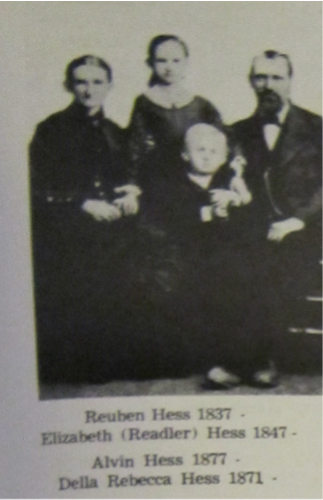

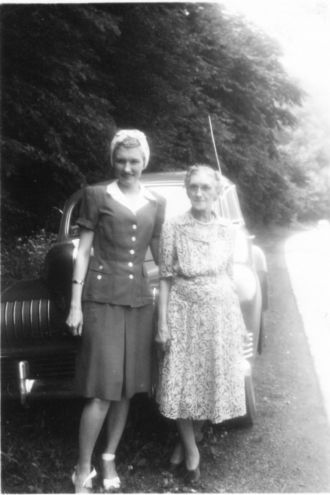

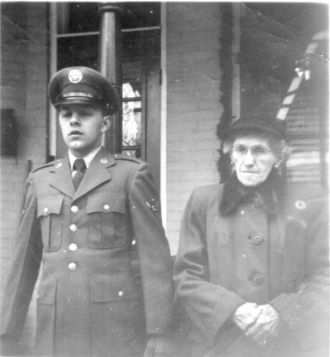

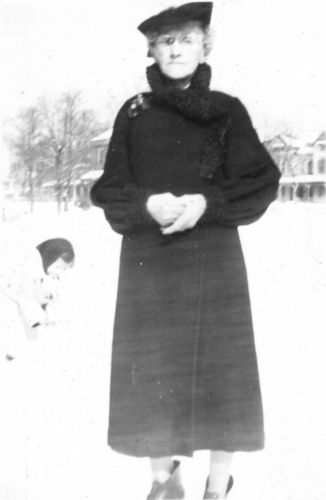
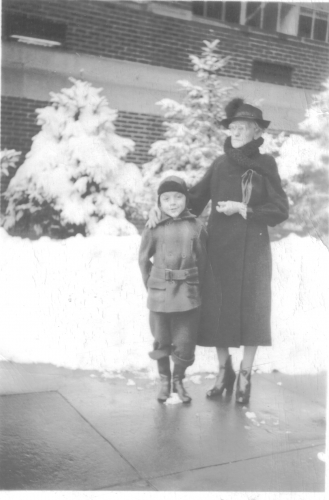
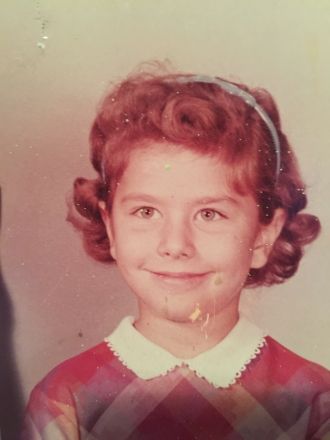
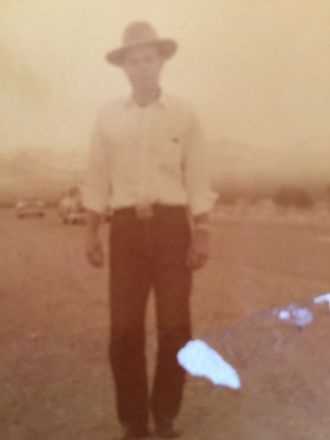
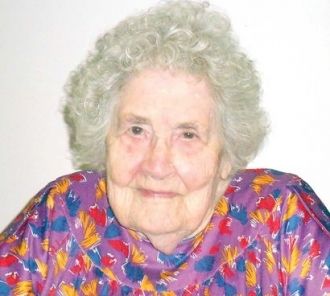


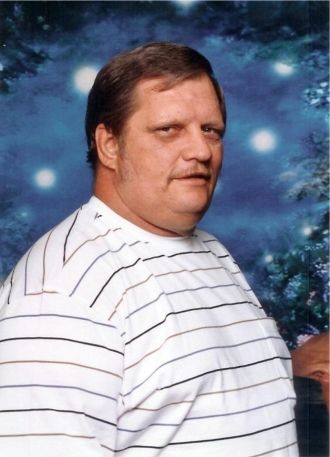

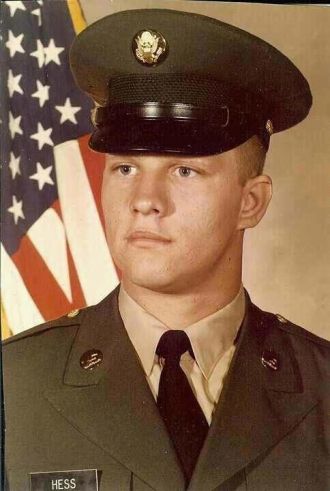
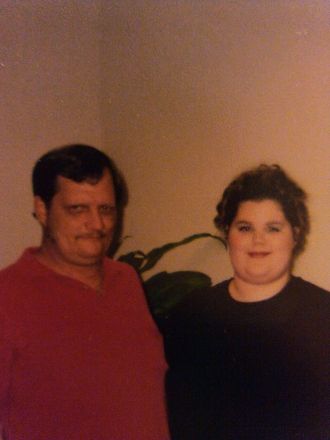

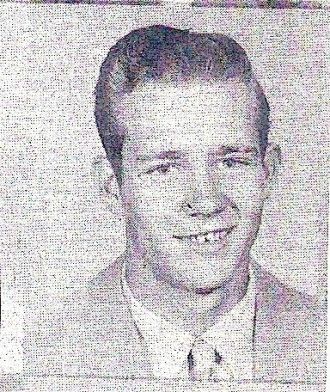


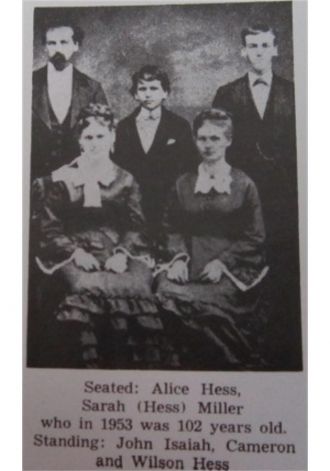

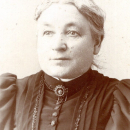
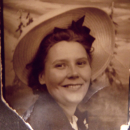
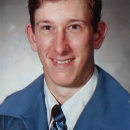



Father's wives were all good mothers, worker and managers. I love each one of them dearly and all my dear brothers and sisters and hope and pray that we will all meet on common ground again some where and live our lives over again.
Father believed in spare the rod and spoil the child. He was terrible to whip, although he only whipped me once and that was for quarreling and I needed it. Father was very orderly about everything. The machinery he used all summer was all greased and housed for the winter. Each spring before farm work began, the harness was all washed, mended, oiled and greased and hung up to dry. Father and his boys always drove fine big sleek work horses that were well taken care of, as were the wagons and hay racks. Three big loads of hay went to Salt Lake three times a week. The timothy clover hay, he hauled to the dray men to feed their horses brought 21 to 23 dollars a ton. That is how he fed and clothed his family.
One spring when I was about twelve years old, the boys were all in the barn greasing harnesses. I never did know just what they were quarreling about, but they were just beginning to fight when father stepped in. He asked what was the trouble? And Lot, one of the boys, talked back to him and wouldn't shut up. Father whipped him and he left home and went up to Bear River to his brother John. Father found out where he was and wrote to John and told him to hire him for the summer, and he would pay the wage, which he did. When school time came, father wrote to Lot, asked for his forgiveness and asked him to come back home and go to school. Lot started home about the first of November, with a bunch of other men that lived in Farmington. One of the men in he bunch said his horse was the fastest, they decided to race. The ground was frozen hard and slippery. Lot's horse slipped and fell on him. His ribs were crushed, and thrust into his lungs. He never was conscious. Well, it nearly killed father. He walked the floor day and night. He blamed himself for what had happened. That was the end of the whipping. I have heard him say to my mother, when she was using her hand to punish us children, “mother don't you know that big boney hand hurts? If you must whip get a switch.”
One time many years ago, quite a bunch of father's children and a lot of the neighbors, were playing run-sheep-runout by the big barn in the street. It was just about dark. Father thought it was time they were all in bed. So he got a nice switch and as they ran by him, he grabbed them and gave each on a whack and told them to go home or he would give them some more. He caught one boy by the arm, and gave him a whack. The kid said, “don't you hit me again, you big cuss. I'm not your kid”! He was one of the Grover boys from down the street.
One of my half brothers, James Henry Hess, one of aunt Mary Ann's sons, was loading grain in a railroad car. The passenger train came in. A lady stepped off the observation car platform and came tripping over to him. “I would like to see a Mormon,” she said. “Can you show me one”? He said, “lady, I am a Mormon.” She said, “well, could you show me a polygamist child?” Henry said, “lady I am a polygamist child, the titan of twelve.” He was over six feet tall [6'7''] and heavens, she went back to the observation car and he went loading grain.